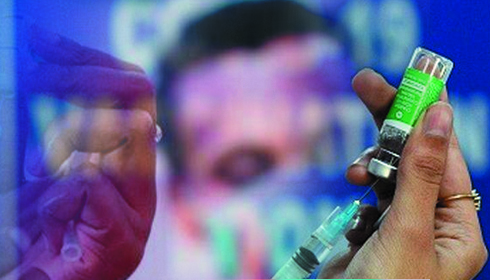
Global Health Experts Call for Reforms to Improve Vaccine Access During Emergencies
In a recent Perspective article in the New England Journal of Medicine, Georgetown University specialists believe that significant reforms to the global regulatory structure are required to provide equal access to vaccinations and other medicinal items during public health emergencies. Georgetown School of Health professor Sam Halabi, JD, and medical student George O'Hara, David E. Rogers Student Fellow, present three effective approaches for enhancing regulatory institutions, particularly in low- and middle-income countries.
The US Food and Drug Administration (FDA) and a few other high-income country authorities have chastised the existing system for generating delays and bottlenecks in the transfer of critical medical supplies during situations like the COVID-19 epidemic. According to Halabi and O'Hara, almost three-quarters of World Health Organization (WHO) member countries lack the regulatory maturity required to safeguard the quality of medical products, including vaccinations.
To address the pressing difficulties of global vaccine access during emergencies, Halabi and O'Hara offer a comprehensive method that includes three interrelated steps. First, they propose expanding regulatory coordination and planning by encouraging the WHO to collaborate with sophisticated national regulatory authorities such as Korea, Saudi Arabia, and Singapore. Enhanced regional collaboration would expedite dossier assessment and approval processes during crises. They also urge that regional and multilateral development banks provide financing for the purchase of medical products certified by WHO-listed agencies. The purpose of this strategy is to alleviate the bottlenecks and access concerns that the COVID-19 pandemic exacerbates. Finally, they recommend that future global pandemic agreements include provisions for decentralized regulatory review. This strategy, by broadening the approval process to include regulators from nations with strong systems, could speed up vaccine access in low- and middle-income countries. These procedures, when taken together, aim to improve the efficiency and equity of responding to public health emergencies.
The WHO has begun to reduce its reliance on the European Medicines Agency and the FDA by creating a new framework of WHO-listed authorities. However, Halabi and O'Hara emphasize the significance of taking more steps to increase national control over vaccine supplies and reduce reliance on global institutions such as COVAX.
"Expansion of regulatory pathways would prioritize public health by enabling diagnostics, therapeutics, and vaccines to reach populations sooner," the paper's authors claim. "By implementing these high-impact steps, global health leaders can create a more equitable and efficient response to future public health crises."